Discover Agent Beta: see your competitors' winning ads, before you create
Beniamin Duca
Aug 12, 2025 - 4 min read
Creatopy is now The Brief. Read the full note from our CEO, Tammy Nam.
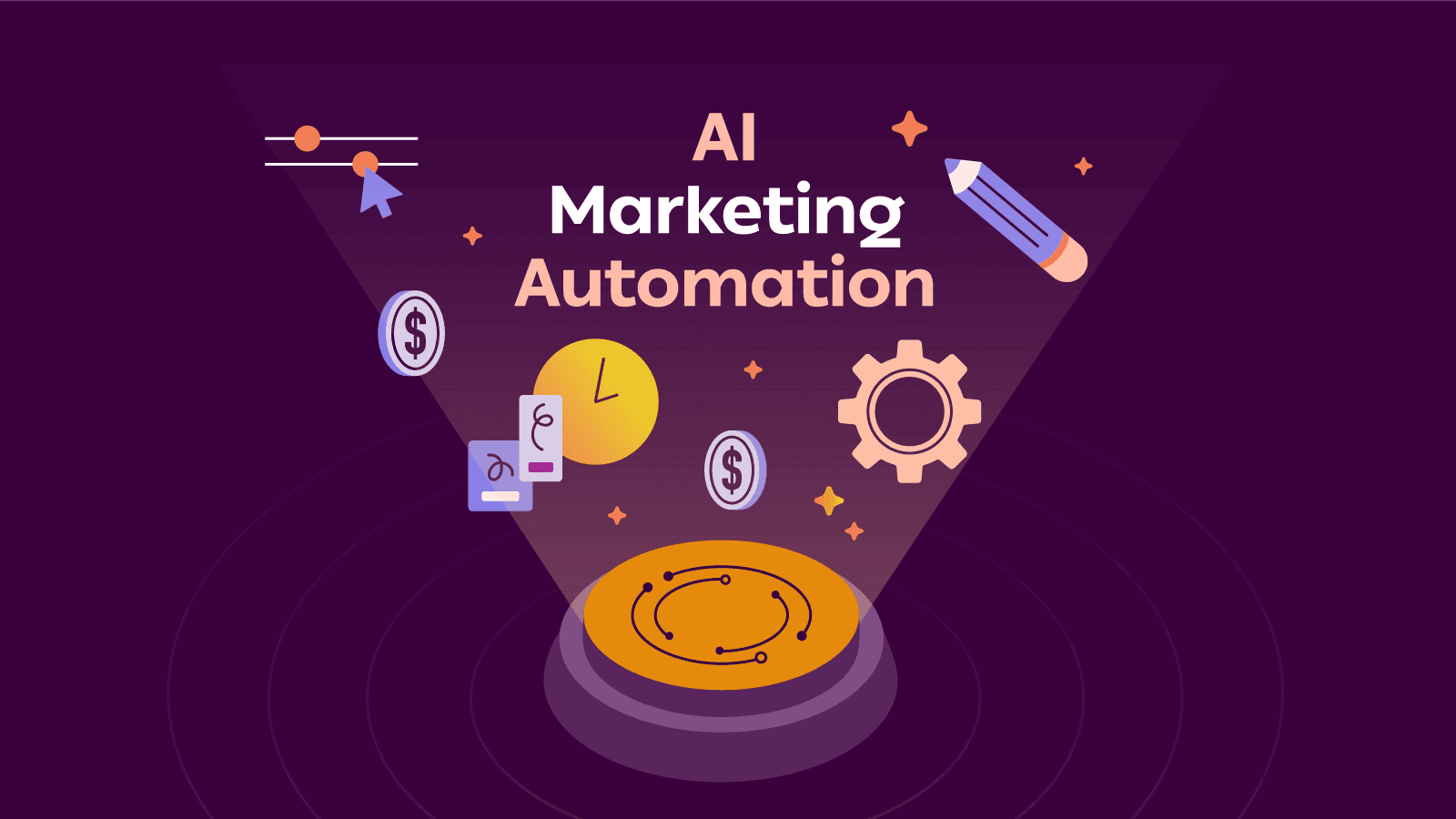
As we ride the wave of technological innovation, Artificial Intelligence is increasingly cementing its status as the unsung hero of the marketing realm, particularly when it comes to automation.
The influence of AI in marketing is no joke, with market projections soaring to an impressive $107.5 billion by 2028, rocketing up from a baseline of $15.84 billion in 2021.
Given this hard-to-ignore rise, it's crystal clear that marketers can't afford to hit snooze on AI marketing automation. Consider this your backstage pass to understanding AI's starring role in marketing automation and, more importantly, how you can harness its potential to keep the competition in the rearview mirror.
Let's dive into the playbook of AI marketing automation and uncover the strategies that will have you riding the tech wave in style.
A. What is AI?
B. What is marketing automation?
C. What is AI marketing automation?
D. The benefits of AI marketing automation
E. How to use AI in marketing automation
F. Examples of AI in marketing automation
You may already be using automated marketing tools for email marketing campaigns, social media management, or lead generation. But AI-powered automation takes digital marketing to the next level.
A study by the Influencer Marketing Hub found that 77% of marketers use AI automation, and one in two businesses see benefits in using AI for automating tasks.
If you’re one of the marketers who don’t use AI tools just yet, or you’re using AI automation but are looking to learn more about the applications of AI in marketing, this AI marketing automation guide is for you.
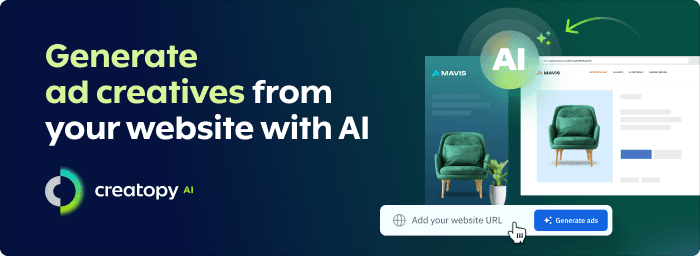
Artificial Intelligence uses computer science to manage and process huge volumes of data, draw key insights, and take action to achieve specific goals.
AI employs technologies like machine learning and deep learning to classify data into specific categories and make predictions.
At its core, AI mimics human intelligence: the ability to reason, analyze information, draw conclusions, learn from past experiences, and make behavioral changes.
John McCarthy, the “father” of Artificial Intelligence, described AI for the first time as “the science and engineering of making intelligent machines, especially intelligent computer programs.”
Marketing automation allows businesses to automate marketing tasks and streamline processes, freeing teams from repetitive, tedious work and enabling them to focus on strategic planning.
Marketing automation is most commonly used in multichannel campaigns, where messages are sent automatically based on a pre-defined template or workflow.
The merging of AI with marketing automation results in AI marketing automation, and essentially, it’s automation on steroids.
That’s why 74% of marketers plan to integrate AI-powered marketing automation into their workflows.
To better understand how AI operates in marketing automation, we need to go through the concepts and technologies that power artificial intelligence marketing automation:

Marketers spend countless hours daily on manual tasks like keyword research, data analysis, list building, and content creation. According to a HubSpot study, by simply using a single AI tool, a marketing professional can save 2.5 hours/day, which means 12.5 hours back per week, and 26 additional working days per year. Imagine how many other things you could do in that time.
AI-powered chatbots are available 24/7, all year round. They can take in any customer inquiries, answer questions about products and services and even adapt to a conversation to solve more advanced problems. Therefore, a large crew of customer care agents may no longer be needed. Humans can take over only when chatbots reach their limits.
Advertising spend is one major topic for debate in any company. But with AI automation, marketers can optimize channels, audience targeting, bidding, and placement to completely eliminate waste.
AI can predict a customer’s actions based on data insights and optimize marketing efforts.
For example, some AI sales tools can identify website visitors and their intent and provide personalized customer care through AI-powered chatbots to guide them further down the sales funnel.
AI for marketing automation is designed to analyze data, take out insights about customers (past behaviors, online searches, preferences), and use them to create personalized content for higher impact.
For example, AI automated email campaigns can be programmed to send personalized emails to customers based on their past purchases, making further product recommendations. This type of email automation is essential for e-commerce websites.
Marketing automation AI tools are here to optimize tasks and workflows. From delivering blog-ready content to running laser-focused targeted ad campaigns, AI can and will optimize every stage of the marketing process.
Therefore, with better content reaching the right audience in the right placements leading to improved email deliverability, businesses can only expect their ROI to take off. As a matter of fact, according to a study run by Accenture, companies that adopt AI see a 30% increase in ROI.
The applications of AI in marketing automation are multi-fold, and it’s worth exploring each one of them. AI tools can be used to create and generate ads at scale, automate email marketing, analyze customer data and pinpoint valuable insights, and provide automated and personalized customer service through chatbots.
Let’s see each use case of AI in marketing automation.
Creative automation allows companies to go from concept to live multi-platform ad campaigns 10 to 20 times faster. Using AI tools, design teams can create sets of display ads, edit them simultaneously, animate, download, and publish them to ad networks.
This automated workflow saves creative teams time and costs while delivering high-quality display ads.
Moreover, AI automated platforms can help designers create optimized ads, using generative features for text and visuals.
The Brief can help you optimize your ad production process with AI creative automation tools. Here’s how:
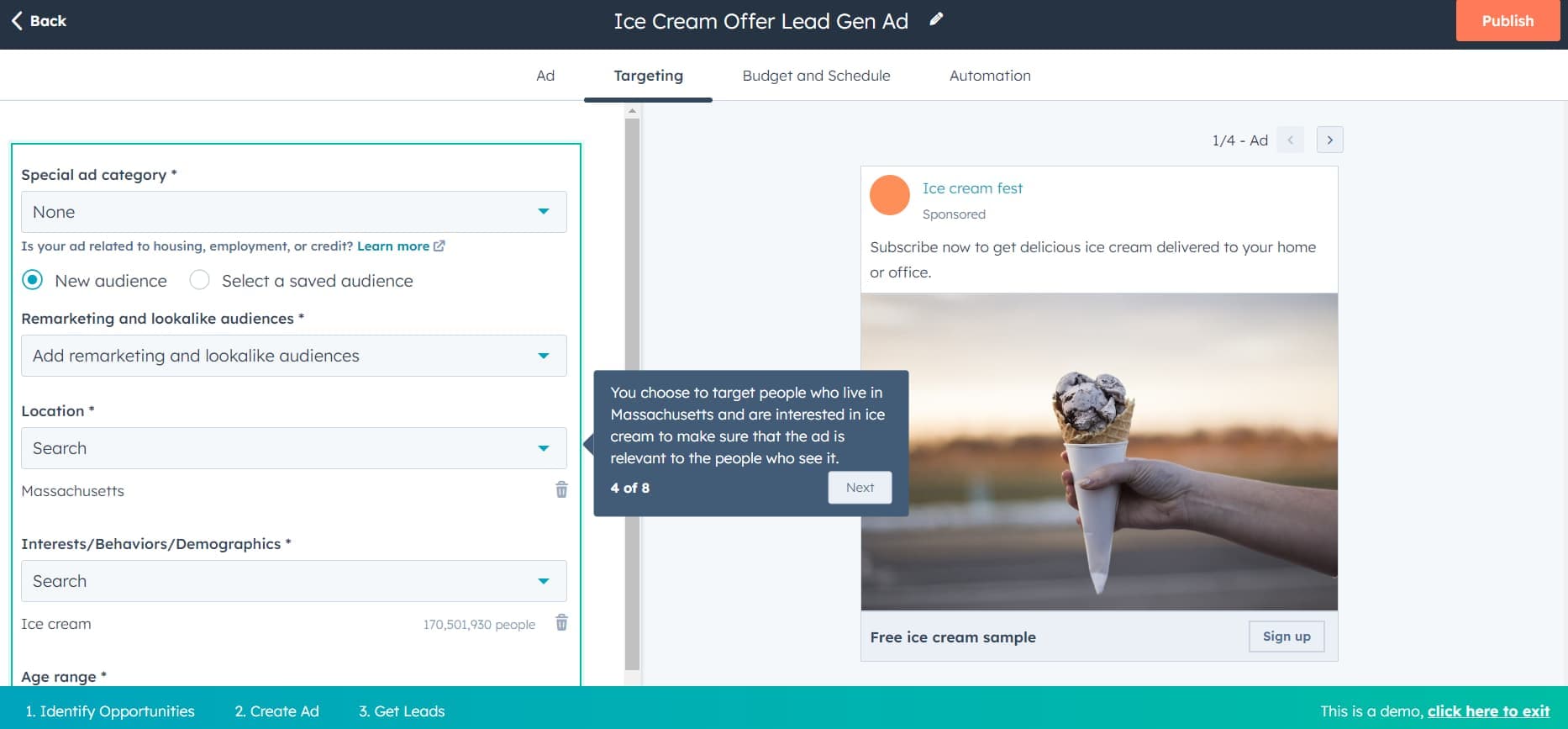
Source: HubSpot
Marketers use AI-powered tools to customize every aspect of their marketing campaigns, from messages to audience targeting and bidding.
For example, AI can create audience groups based on their demographic data, location, past behavior, online searches, or interests and send custom messages to each group for maximum impact.
Moreover, using real-time collected data, AI chatbots can instantly adjust messages to suit the customer and change outcomes.
A report performed by DRIFT found that 41% of respondents use AI in marketing to create personalized consumer experiences at scale.

Source: Active Campaign
Companies leverage AI email marketing software to generate content, automate customer journeys, A/B test, and customize messages for each customer.
Custom workflows and personalized messages go hand in hand in nurturing subscribers and customers through the conversion funnel. AI tools will generate custom and relevant messages for each customer depending on their stage in the funnel, on their actions (opened the email, clicked the links, etc), or inaction.
AI email automation is especially suited for ecommerce websites. The best AI email automation tools will sync email with website inventory data to allow their software to generate personalized emails automatically. Customization is possible thanks to machine learning algorithms scanning customer data and behavior, extracting insights, and segmenting contacts into groups. For example, AI tools can send customized automated promotional discounts, exclusive offers, or product recommendations, increasing click-through rates.
One key aspect of email marketing is the personalization of subject lines. A subject line can make or break the performance of a campaign. It’s been proven that emails with personalized subject lines are 26% more likely to be opened than emails with a general subject line.
The content of the email is also crucial, and many email marketing platforms have integrated AI text generators to deliver optimized conversion-ready emails.
Moreover, using A/B testing, AI tools are able to identify which message works for different groups of audiences and continuously adjust communication for better response. Studies have shown that A/B testing can improve email conversion rates by 49%.
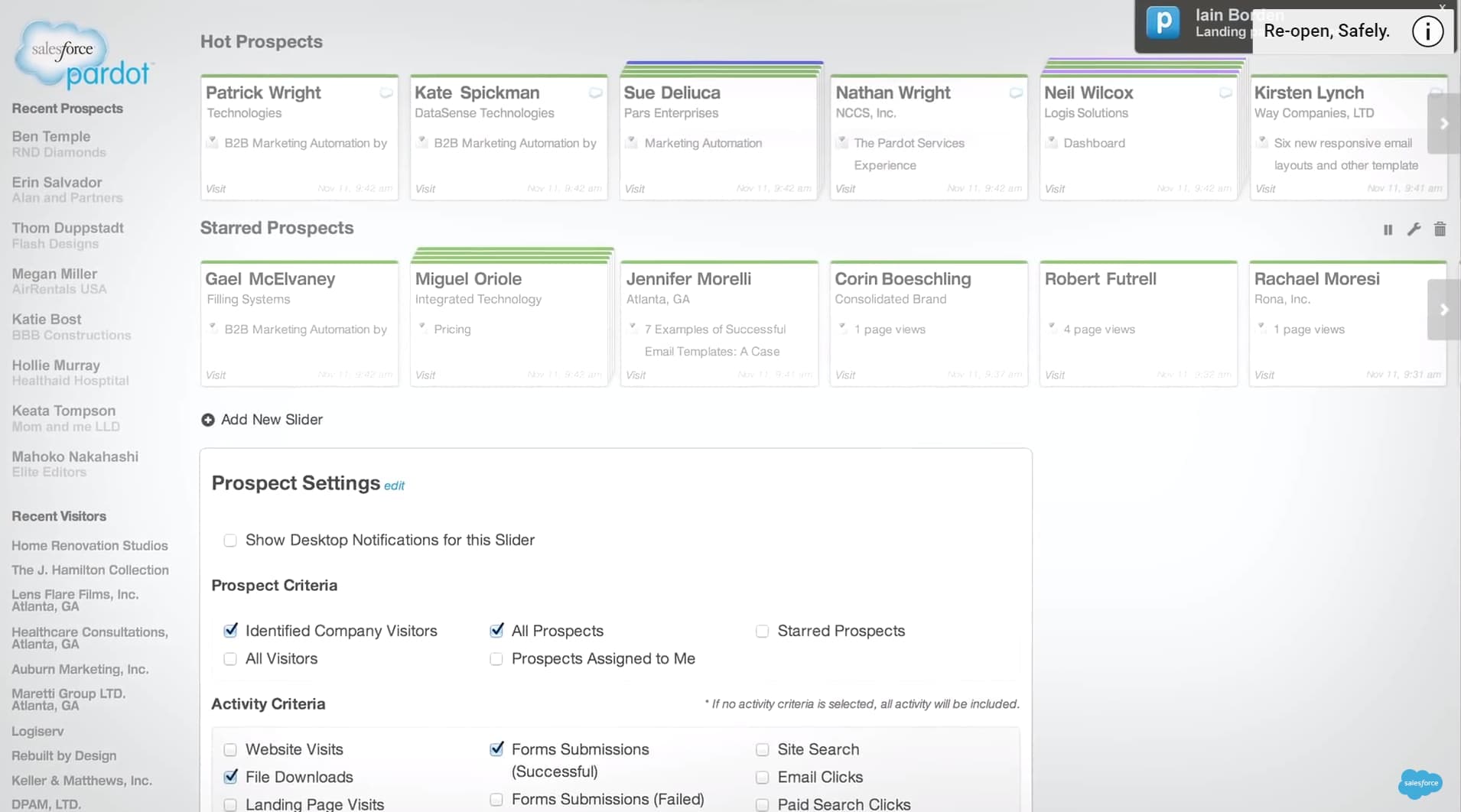
Source: Salesforce
In the past, sales teams spent weeks manually processing thousands of leads and assessing their potential for purchase.
But now, AI can automate lead scoring and nurturing by analyzing data to identify which prospects are most likely to convert into customers.
Automatic lead scoring assigns values for potential purchase, while automated lead nurturing refers to guiding leads through the sales funnel, step by step, all the way to purchasing.
Not only does AI automate this process, but it also helps companies save time and free their sales team. Once leads are processed by AI, only qualified leads get to be directed to the sales team for one-on-one calls.
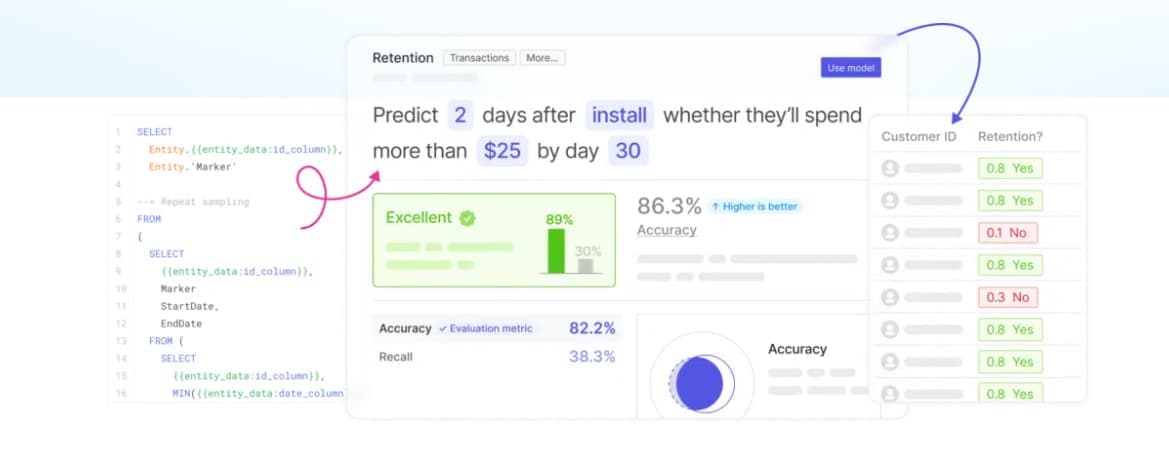
Source: Pecan.ai
Predictive analytics refers to assessing statistical algorithms on data to determine future results based on historical data.
Using machine learning, AI can identify patterns and predict customers' future behaviors and actions. Thus, marketers can adjust their strategies accordingly at every step of the way and increase customer satisfaction.
Modern marketers leverage AI-powered predictive analytics to identify trends, customer behaviors, and find the missing link between cause and effect. This allows them to make data-driven decisions. In fact, 40% of marketers use AI to get actionable insights from data.
Previously, analytics tools analyzed limited structured data to provide insights. But with the integration of AI into analytics platforms, vast volumes of big data can now be processed. Big data encompasses both structured and unstructured data, and that’s where things get complex.
Unstructured data refers to anything from social media posts and comments to audio, video, image files anywhere on the internet. This data type can be a gold mine for companies, helping them to identify customer sentiment, conversation trends, and topics.
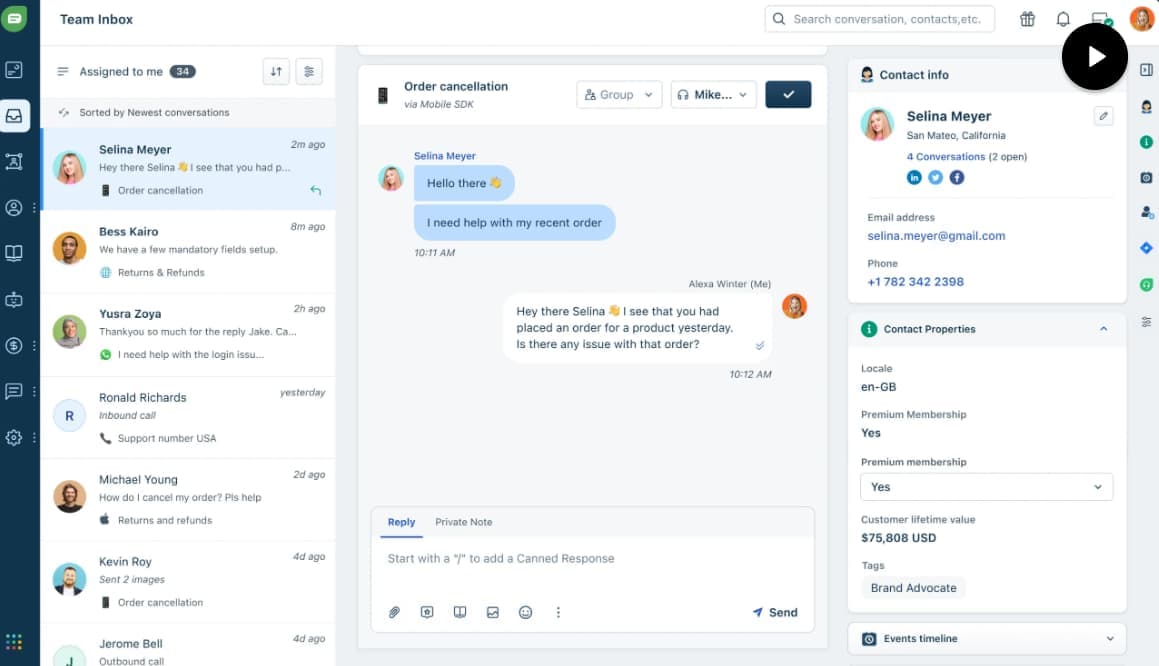
Source: Freshworks
In the past, customer support agents used to be overwhelmed with inquiries. But that’s history. With AI chatbots powering conversational marketing, companies can now provide automated personalized customer care 24/7.
AI chatbots or AI assistants use natural language processing and machine learning to understand customer inquiries and respond in a personalized manner in real time. The benefits of AI agents in this context are significant, as they can provide automated personalized customer care 24/7, handle inquiries, answer questions, and even process orders and provide recommendations.
Recent studies found that companies usually employ chatbots aiming to:
AI assistants can take in all inquiries, answer questions, and provide personalized care before handing leads to customer support or sales teams. Some companies even use live chat to process orders and provide recommendations. And that’s because AI chatbots are fully customizable for any type of task.
But unlike the previous generation of chatbots, AI-powered chatbots can mimic the human language and answer in a natural way, rather than simply providing standard answers.
With AI processing a user’s online data in real-time and detecting sentiment, the communication becomes more human-like and contextual, just like a human-to-human conversation.
Bottom line, AI assistants contribute significantly to improving customer service tasks and providing better customer experience, leading to higher conversion rates and increased ROI.
Whether they’re used in social media marketing or as website live assistants, AI chatbots are future of customer relationship management.

Source: The Trade Desk
Running a multi-channel marketing campaign is no easy job. There are important decisions a marketer must make at every step of the process, like choosing the right channels to meet potential customers and targeting the right audience.
But with AI analyzing data and identifying the best channels, audiences, and ad placements, campaign setup flows effortlessly while increasing chances for better conversions and ROI.
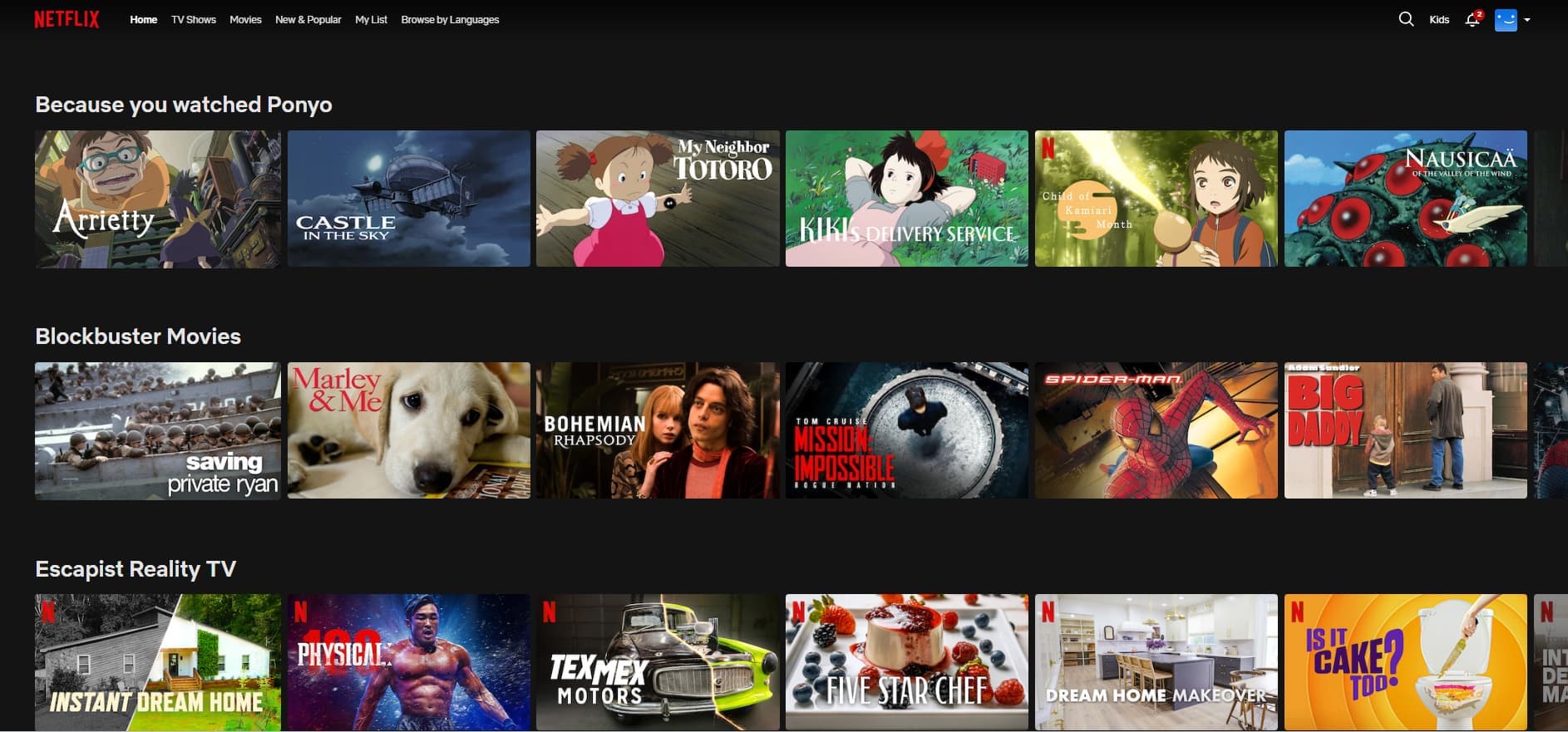
Netflix is probably the best example of a company using AI to learn about its customers preferences and provide personalized content.
Whenever you go on Netflix, the platform will display suggestions of movies and shows, based on the content you’ve seen in the past. The recommendations are often close to what a user would naturally search for and choose. Moreover, their machine learning algorithms continuously learn about each user and perfect their predictions to improve customer experience.
Another great example of AI at work is Booking.com.
The platform makes everyone’s lives easier (and more exciting) by providing recommendations for places and flights based on your booking history and searches.
This saves users from spending hours or days hunting for the ideal travel places.
Booking has recently launched an AI Trip Planner service only for English-speaking US users, answering questions and helping customers at every step of their trip-planning process. AI Trip Planner is a chatbot powered by Open AI’s ChatGPT. The service is still in beta, but the platform promises to make it available for everyone soon.
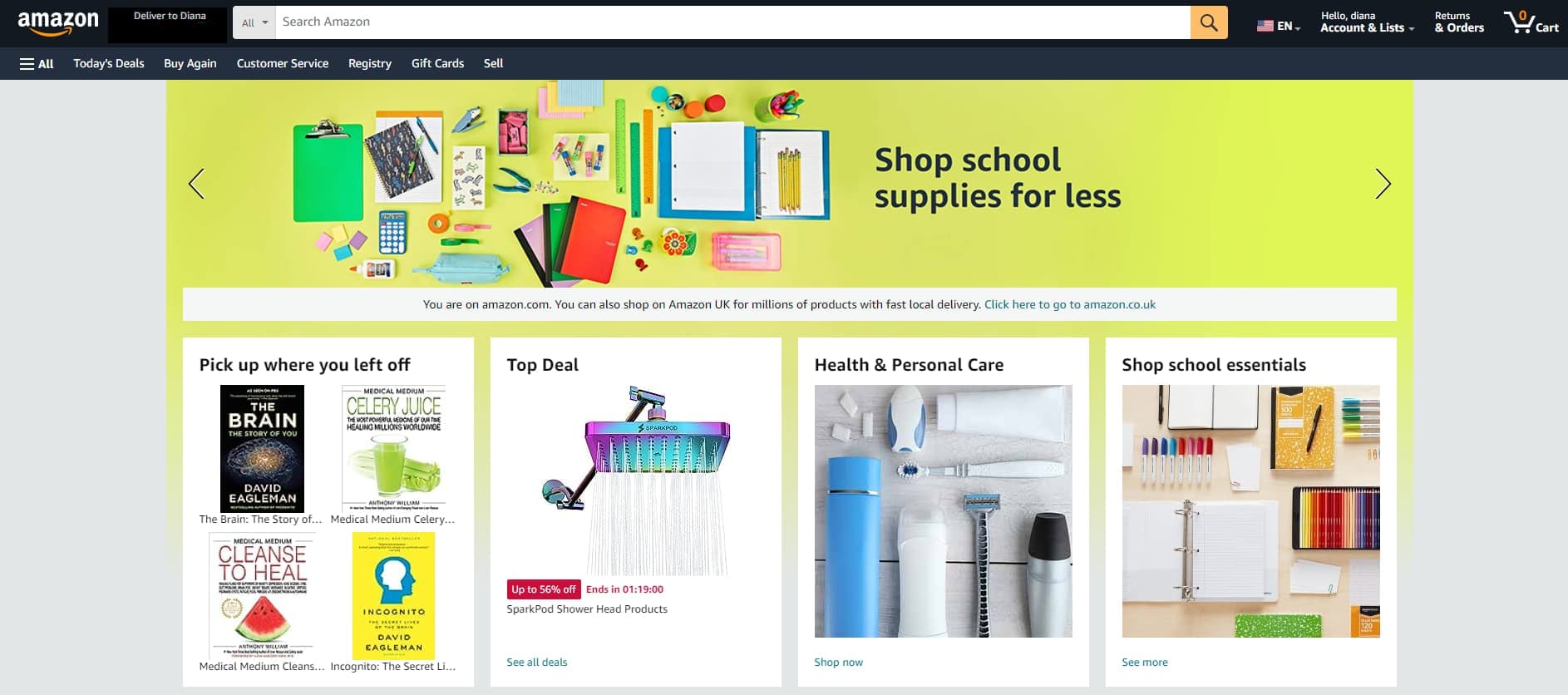
We cannot end this article without mentioning Amazon. The retailer has been using artificial intelligence for many years now to analyze customer data and make recommendations based on past purchases and searches. Their algorithms are probably the best in the world, as the recommendations match customer needs in most cases.
With the knowledge you gained today, you can now join the AI revolution.
Start by defining your marketing goals and strategy and then decide which tasks you want to automate. You may need help with content creation or automated advertising, or maybe you want to reinforce your sales team with an AI assistant. Either way, AI-powered marketing automation will help you increase productivity, streamline processes and deliver optimized and personalized messages to your customers, which will reflect in your return on investment.
Let's put these insights into action. Build, scale, and automate campaigns with AI-powered workflows.
Beniamin Duca
Aug 12, 2025 - 4 min read